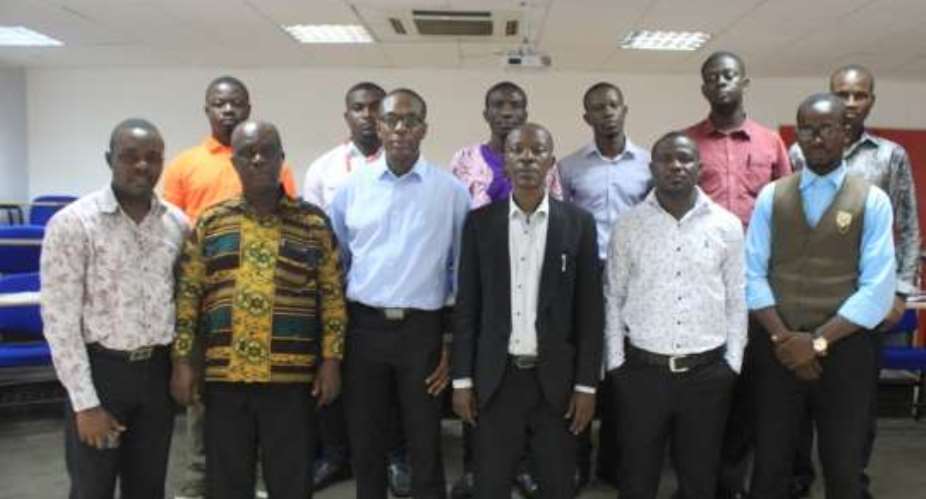Accra, April 2, GNA - Mr Marco Nyarko, a research assistant, has called for the teaching of the English language alongside the sign language for the deaf communities.
He said this would enable the deaf community to appreciate and improve on their English language.
Mr Nyarko was speaking at the final dissemination workshop for a prestigious international pilot project on peer to peer deaf literacy being undertaken by Lancaster University Ghana (LUG) and its partners, the UK's Lancaster University and University of Central Lancashire, India and Uganda in Accra.
The workshop was titled: 'Literacy development with deaf communities using sign language, peer tuition, and learner-generated online content: sustainable educational innovation.'
The project funded jointly by the Education and Social Research Council and the Department for International Development is aimed at equipping deaf sign language users with the knowledge and confidence to engage with written English texts, increase their employability status and quality of life.
The project led by deaf research assistants in the three countries, Peer-to-Peer Deaf Literacy will reveal new practices and interventions that policy makers can use to improve education, literacy and empowerment in deaf communities.
He said finding from the research indicates that the use of information communication technology would enhance literacy development among the deaf.
He said as part of the research, a platform would be developed to provide English-Language teaching for members of the deaf communities and also draft a model of effective language teaching interventions to guide policy and further innovation.
'We will also adapt the Common European Reference for Language for use in Ghana,' he said.
He said only three per cent of deaf people have access to education through sign language and in the case of Ghana, the setback to higher education was English Language competencies.
Mr Nyarko said the educational curriculum and traditional methods of teaching does not meet the learning needs of deaf people.
He said because of the English language barrier, most deaf people faced challenges in the bank, at the police station, hospital and in reading of newspapers.
He expressed the hope that all stakeholders would be involved to support the project to enable it go a long way to enhance literacy development of deaf communities in the country.
Dr John Grainger, Provost LUG, said many were happy with the way the project was going to impact on the lives of deaf people.
He said the project, which was being undertaken on a pilot bases would be expanded to run as a full project.
Mr Benjamin Bekoe, a participant, told the Ghana News Agency that the project would go a long way to improve on their English language.
GNA





 Tuesday’s downpour destroys ceiling of Circuit Court '8' in Accra
Tuesday’s downpour destroys ceiling of Circuit Court '8' in Accra
 SOEs shouldn't compromise on ethical standards, accountability – Akufo-Addo
SOEs shouldn't compromise on ethical standards, accountability – Akufo-Addo
 Father of 2-year-old boy attacked by dog appeals for financial support
Father of 2-year-old boy attacked by dog appeals for financial support
 Jubilee House National Security Operative allegedly swindles businessman over sa...
Jubilee House National Security Operative allegedly swindles businessman over sa...
 Nobody can order dumsor timetable except Energy Minister – Osafo-Maafo
Nobody can order dumsor timetable except Energy Minister – Osafo-Maafo
 Mahama wishes National Chief Imam as he clock 105 years today
Mahama wishes National Chief Imam as he clock 105 years today
 J.B.Danquah Adu’s murder trial: Case adjourned to April 29
J.B.Danquah Adu’s murder trial: Case adjourned to April 29
 High Court issues arrest warrant for former MASLOC Boss
High Court issues arrest warrant for former MASLOC Boss
 Align academic curriculum with industry needs — Stanbic Bank Ghana CEO advocates
Align academic curriculum with industry needs — Stanbic Bank Ghana CEO advocates
 Election 2024: We'll declare the results and let Ghanaians know we've won - Manh...
Election 2024: We'll declare the results and let Ghanaians know we've won - Manh...
